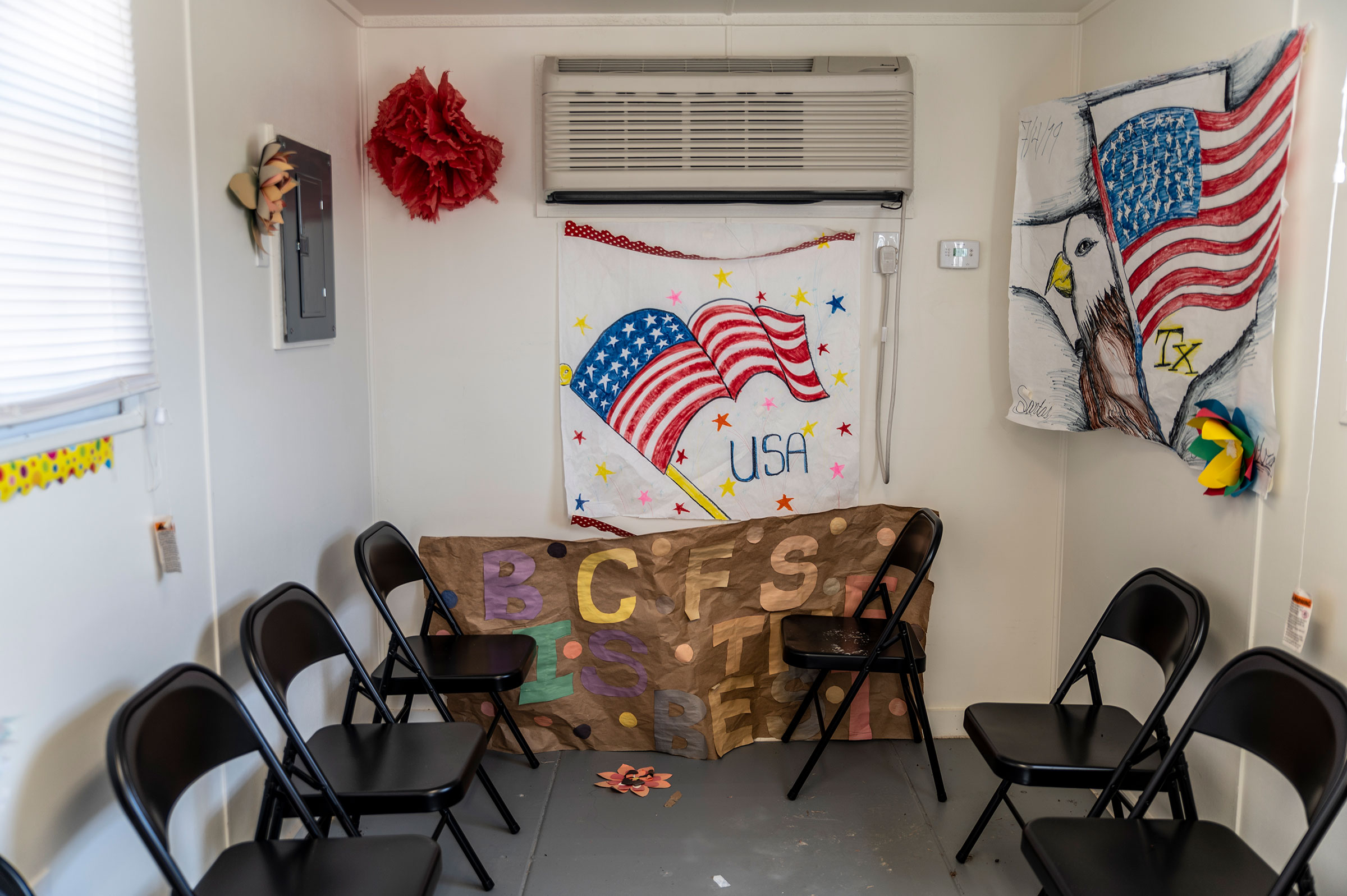
President Biden was elected on a promise to end the inhumanities of the Trump Administration and to reassert America’s commitment to people seeking refuge and a better life. But seven weeks in, advocates are still waiting on Biden to fulfill his campaign promise to end family detention. Recently, the Biden administration reopened the Trump Administration’s massive child detention center in Carrizo Springs, Texas, and is reportedly planning to reopen the infamous Homestead child detention center in Florida. The Washington Post unveiled Immigration and Customs Enforcement’s (ICE) plans to turn Berks County Detention Center into a women-only facility, and rebrand the two family detention centers in Texas as so called “rapid-processing” centers.
A prison is a prison. That’s true whether it’s called a “family residential facility,” or a “rapid-processing center.” These facilities must be torn down, not renamed.
I know what it’s like to be incarcerated as a child. I’m a Japanese-American who was born behind barbed wire, in the maximum-security Tule Lake Segregation Center during World War II. When I was two years old, I was transferred to the Crystal City Family Internment Camp, run by the Immigration and Naturalization Service — the agency that evolved decades later into ICE. It is just a 20-minute drive away from Carrizo Springs and 45 minutes from the newly rebranded “reception center” in Dilley. When I see migrant children incarcerated today, I cannot help but recall my own childhood. And when I’ve met these children, I’ve seen the same trauma in their eyes that I continue to work through today.
The Biden Administration insists Carrizo Springs is a humane place to detain children, touting the classrooms, medical services, and cleanliness. However, because they are deemed “influx” or “emergency,” they are subject to even fewer requirements than other facilities that the Office of Refugee Resettlement uses to hold migrant children. The political spin of Carrizo Springs and the rebranding of the Karnes and Dilley Family Detention Centers by ICE as “rapid-processing centers” is a veiled but familiar attempt to keep jailing children and families. These facilities do not allow for freedom of movement: people are deprived of their liberty.
No matter what it’s called, a cage is still a cage. I know this firsthand; in 1945, the U.S. government published a propaganda film about the Crystal City internment camp where I was held, touting the flower gardens, medical staffing, and daily milk deliveries to this family prison. The film cited these as signs of the “normal living conditions” inside the fence. But — despite these superficial niceties — I knew that I lived in a prison, and that the job of the armed guards in the watchtowers was to prevent my escape.
As an adult, I became a psychotherapist specializing in community trauma. From my professional training and experience, and from my own assessments of children held in family detention, I know the harm of childhood incarceration is deep and insidious. The trauma often manifests as hyper-vigilance, uncontrollable bouts of crying, sleep disturbance, and depressed mood. Incarceration also fractures the child’s sense of self, leading to feelings of shame and humiliation that the child internalizes and then acts out on others. The chronic stress of mass incarceration can alter the child’s developing nervous system to be over-sensitized to perceive threat; this hypersensitivity can lead to impulsivity, attention difficulties, mood swings, difficulties with intimacy and attachment, drug and alcohol addiction, avoidant behavior, and anger control difficulties — post-traumatic stress disorder, often misdiagnosed as anxiety or depression. I continue to have trauma-driven reactions from my own childhood incarceration.
The Biden Administration also knows these harms; the evidence and documentation is overwhelming. They know that the professional consensus is that when migrant children cannot be immediately reunited with their families, the appropriate and humane setting to house them is in a small-scale, home-like environment where they receive care and supervision from licensed child welfare professionals. In these types of exceptional situations, this should be the norm, not — as is now the case — a goal that often goes unmet. For family detention, the answer is also clear: ICE’s Berks, Dilley, and Karnes family detention centers, like all detention centers, must be permanently shut down. Thanks to the organizing of detained families, community members and advocates, all families detained at the Berks Family Detention Center were released in late February. But until all contracts with ICE are cut and these facilities are shut down, our fight is not over. We are already seeing reports that Berks will be converted into a detention center for women instead of being shuttered.
And for families that need support, like transportation and housing, such support should be provided and facilitated by local community based groups who have a long history of welcoming people; the support that the Haitian Bridge Alliance in San Diego and around the United States provides is a clear example.
The Biden Administration insists its expansion of child detention is only temporary. But if so, how long will children continue to be imprisoned in places like Carrizo Springs? And how can we know this won’t just be the first phase of a new and terrifying normal?
When immigration authorities lock up children and families , they are acting with full knowledge of the long-term trauma they are inflicting.
Years from now, children and families will be wrestling with the trauma of incarceration and demanding to know — as I demanded — why the U.S. government did this to them. We must shut these prison camps down.
More Must-Reads from TIME
- Cybersecurity Experts Are Sounding the Alarm on DOGE
- Meet the 2025 Women of the Year
- The Harsh Truth About Disability Inclusion
- Why Do More Young Adults Have Cancer?
- Colman Domingo Leads With Radical Love
- How to Get Better at Doing Things Alone
- Michelle Zauner Stares Down the Darkness
Contact us at letters@time.com